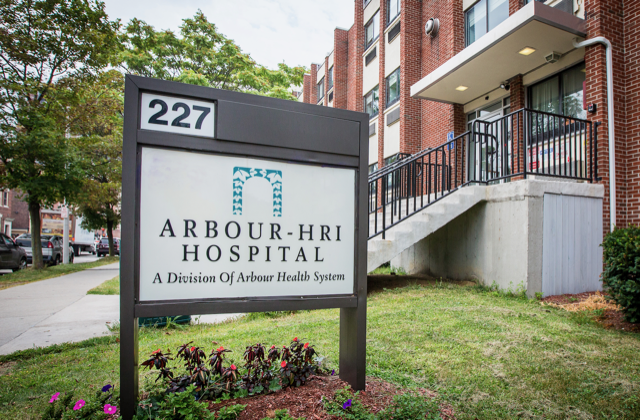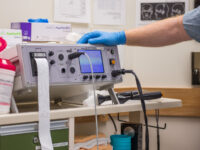My interview at Arbour HRI Hospital was unlike any I’d experienced before. Among the typical questions about my resume or past healthcare experience were questions about how I felt about restraining people physically, or what I’d do if I walked into a patient’s room and found them engaging in self harm. Perhaps those sort of questions should be expected when applying to work for a mental hospital, but it was startling to be confronted with them so directly. After working at the hospital for nearly three months, these are questions I still find myself asking.
As a member of the niche Biology and English major, I’m constantly asked about what I want to do with my life after college (at which point I add in the fact that I am pre-med). I’m currently very intrigued by the field of psychiatry. As such, when I encountered this “Mental Health Worker” position on NUWorks, it felt almost too good to be true. After being offered the position, I was filled with mixed emotions. Part of me was thrilled with the opportunity, but part of me was absolutely terrified. The reactions of my family and friends were similarly mixed.
Beyond the safety concerns that come with jobs in healthcare, the stigma surrounding mental illness and the people it affects are deeply rooted in society.
When I arrived in Boston for my orientation, my emotions were only heightened further. Between heartwarming anecdotes from staff about moments of connection and healing were stories of danger and fear. On one memorable occasion, a nurse recounted how her coworker returned to work with a black eye after being assaulted by a patient.
While managing my emotions concerning our training, my head was pumped full of information about working there. Throughout our two-week orientation, I was inundated with various procedures — from more menial tasks like charting and admissions to more sobering lessons on verbal de-escalation, trauma-informed care, and physical restraint. Afterward, we completed five “shadow shifts” where we followed around various mental health workers as they completed their shifts. On my first shadow shift, the worker I was observing said “If you can work here, you can work anywhere.” I was hardly cognizant of just how right she was. I found myself asking what kind of job was so brutal and arduous that it could prepare you for anything?
Answer: this one. The schedule for each day is essentially the same: get report from the previous shift, do safety checks (methodically going through the unit and confirming each patient’s safety every 15 minutes), escort the patients to breakfast, take patients for fresh air, conduct a community meeting with the unit, take the patients to lunch, another fresh air break, and then give report to the oncoming staff. As regimented as it seems, it hardly ever proceeds as such. It can be hard to keep things timely when you’re tasked with monitoring the care of 17 acutely mentally ill individuals. While we feverishly glance between our watches and the huge schedule on the wall, fights can break out, and patients may start screaming, laughing, or crying. They may begin walking through the hallways in various states of undress. The highs and lows of the job are mind-blowing. I can be sitting with a patient watching them play video games one moment and grabbing a sock filled with batteries from a patient about to attack staff the next.
The most difficult situation of all, perhaps, is when patients express suicidal or self-harm ideation. I’d been working for hardly more than a few weeks when this happened to me. Behind me in the hallway, a patient was refusing to take their state-mandated medications. They began screaming and threatening staff. As I entered another patient’s room, they expressed that they were triggered by the situation and wanted to self harm. At that moment, I suddenly felt very young.
How was I, a 19-year-old kid barely halfway through college, supposed to offer wisdom or comfort to someone many years older, whose pain and suffering I could hardly fathom?
The answer, I think, lies in one very basic fact: We are all human beings. Whenever I get overwhelmed at work, I try to remember that. Human beings crave connection, empathy, and a genuine effort on someone’s part to listen. These skills don’t require a special certification or years of mental health experience. They are something we either have or don’t. If I’ve learned anything from my co-op experience so far, it’s that.
Image Source: The Boston Globe






